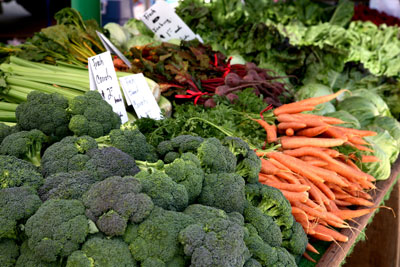
The Final Proof: April 2012
April 13, 2012
By Stephanie Ortenzi
One mighty foot in mouth got us all having a real conversation about keeping our food safe.
Poor Galen Weston. Did he ever put his food in it. He was speaking at the Canadian Food Summit in early February, an event hosted by the Conference Board of Canada and heavily sponsored by Loblaw, his own company, among other food giants.
 |
|
| Galen Weston’s controversial farmers’ market comment at the Canadian Food Summit sparked a cross-country debate over food safety.
|
Weston’s address was billed as “Ensuring Safe and Healthy Food for Canadians,” but somewhere along the line, out of his mouth flew a remark that exploded on Twitter, with live-tweeting that kept the #fs2012 hashtag hopping for days. Plenty of other media fed on the story with equal relish, too.
“Farmers’ markets are great,” Weston said. “…One day they’re going to kill some people, though,” then added, “I’m just saying that to be dramatic.”
Way to attempt a clumsy backtrack, Galen.
The next day, the Toronto Star reported his comments with angry responses from reps and champions of farmers’ markets, and the Globe and Mail’s food writer went on CBC radio to point out the irony of Galen’s comment.
In mid-January, a baby got sick from eating a President’s Choice brand of organic baby cereal. Loblaw swiftly and voluntarily recalled all eight products from the line nationwide.
Seven days after Galen’s remarks, the kerfuffle was still ticking away, presumably because clearly you don’t play fast and loose with charges that your food can kill somebody.
But also, there was a heaping helping of good old-fashioned schadenfreude, my favourite German word meaning taking pleasure in another’s misfortune, from the vantage point of being spared yourself.
Via the Globe’s op-ed page came a sensible and noteworthy request to look seriously at the subject.
“More rational debate on food safety is warranted in our country,” says Sylvain Charlebois, acting dean and professor at the University of Guelph’s College of Management and Economics.
Survey after survey shows, he reports, that as a country, we have a lot of faith in our food-safety system, which is just a bit curious given the stats. Apparently, we suffer more often from salmonella, e. coli, campylobacter and yersinia than Americans.
I don’t know why, and I’ll bet I’m not the only one, but this fact leaves me thinking: there’s no way we’re not more responsible [I know, I mean cleaner] when it comes to food safety than the U.S. No how. And yet, the estimated number of foodborne-illness cases reported annually in Canada is 6.8 million. Federally, the Canadian Food Inspection Agency manages about 235 food recalls by manufacturers, importers, distributors and retailers each year, with a budget of $350 million.
“That’s $10 for every Canadian,” Charlebois calculates.
Is that a lot? It really doesn’t seem like a lot.
Along with Ottawa, food safety is a joint venture with two other levels of government. Officials are keeping watch provincially and municipally.
Probably, the way we may rationalize as a country that we can count on our food producers’ food-safety vigilance is by presuming business depends on it. That’s what keeps supply-chain, traceability and risk management professionals busy all day.
And still we’re vulnerable. Because of that compromised organic grain in the PC baby cereal – which proceeded undetected along the supply chain – all operations using dry goods that are otherwise considered stable, take heed. You don’t know what you don’t know, and you can’t see what’s in your blind spot.
What happened with that cereal was that they had traced the problem to one of the grains used. It had begun to “degrade earlier than expected,” emitting a foul odour because the cereal was rancid.
It was the sour smell that the company was telling consumers to look for if they had the product in their pantries. What mother isn’t going to throw the box away, smelly or not? And you can count on her swearing off this product for good.
Most cases of foodborne illness originate from restaurant or foodservice exposure, according to a study by the Centre for Food in Canada, released at the Canadian Food Summit last month.
That’s most cases. Which means, we can’t trifle with isolated cases. If a slicer at a Maple Leaf production facility can spark an outbreak that made 57 people extremely ill and killed 22, it’s worth asking what’s happening on that deli station slicer at the local bakery cafe.
To keep the fearmongering in check, we can say that we give our food safety the due diligence it deserves because we have to. We build it into our operations, and we cultivate it in our culture. We keep watch that everyone takes their food safety seriously. We shine the light everywhere, so that complacency can’t hide in the shadows. We do the right thing, again and again.
Stephanie Ortenzi (www.pistachiowriting.com) is a Toronto-based food marketing writer.
Print this page
Leave a Reply